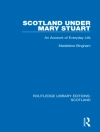Mageza-Barthel provides a context sensitive analysis of how Rwanda’s women’s movement used the United Nations (UN) gender norms in its efforts to insert gender-specific demands in the post-genocide period. The overall goal of these women – and their supporters – has been to further gender equality and equity in Rwanda. This study details which political processes could be engendered. It further illustrates why certain gender norms were adopted and adapted, whereas others were not. The study addresses issues of global governance in gender politics through such international frameworks as CEDAW, the Beijing Declaration and Platform for Action, as well as Resolution 1325. These instruments have been brought forth by a transnational women’s movement to benefit women and women’s rights across the globe. It shows how these gender norms were introduced, adapted and contested locally at a crucial time of the transformation process underway. Concerned with the interplay of domestic and international politics, it also alludes to the unique circumstances in Rwanda that have led to unprecedented levels of women’s political representation. Which tools have been the most significant in women’s mobilisation and how these relate to precedents set within international relations is of interest to a wide community of scholars and policy-makers alike.
Rirhandu Mageza-Barthel
Mobilizing Transnational Gender Politics in Post-Genocide Rwanda [EPUB ebook]
Mobilizing Transnational Gender Politics in Post-Genocide Rwanda [EPUB ebook]
Bu e-kitabı satın alın ve 1 tane daha ÜCRETSİZ kazanın!
Dil İngilizce ● Biçim EPUB ● Sayfalar 208 ● ISBN 9781317094920 ● Yayımcı Taylor and Francis ● Yayınlanan 2016 ● İndirilebilir 3 kez ● Döviz EUR ● Kimlik 4859658 ● Kopya koruma Adobe DRM
DRM özellikli bir e-kitap okuyucu gerektirir












